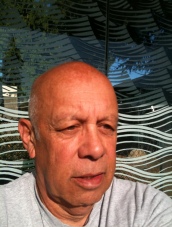Marea Gordett, owner of Big Mind Learning, an educational firm serving students in the Capital region of New York, and author of the poetry book, Freeze Tag, issued by Wesleyan University Press, blogs about her P&W supported writing workshops at the Marillac Family Shelter in Albany.
When I moved from Boston to Albany,New York in the 1990’s, I was awake to the possibilities of a literary community provided by the New York State Writers’ Institute, but rather bereft at losing the teaching connections that I had in a large metropolitan area. Since a friend recommended that I apply to the Readings/Workshops Program at Poets & Writers for funding, I have been thrilled to find this network again in community centers, libraries, and senior centers throughout Albany County and at the beautiful Arkell Museum and Canajoharie Library in Montgomery County.
In these workshops, I am aware not only of what I receive from and give to the writers, but also of a third entity that the group itself becomes— a cacophonous, generous, uplifted community. When there is a space for freely writing about one’s joy, pain and longing, and others willing to listen to these long-withheld emotions-- amazing changes can happen. No matter what the age of the participants, we write from a deep, secret place and then we share, sometimes reluctantly, but always from a growing peace and diminishing loneliness.
This was especially evident to me this winter when I conducted a workshop at the Marillac Family Shelter in Albany. Part of St. Catherine’s Center for Children, this emergency housing program for homeless families meets the initial need for shelter and assists families in empowerment and education. I found a warm welcome when I proposed a writing workshop for teens and mothers called “You are Unlimited.” In this pilot program, held once a week for five weeks, a core of eight people and a constantly-changing extended group gathered in a well-maintained recreation/computer room and wrote, shared, and performed their poems and life stories. As I entered the room every Thursday, mothers with babies and young children would clear the space and shut the door. The dedicated teens, with their mothers usually sitting in couches a few feet away, would sit hushed and ready to write, even after a full day of school.
Participants wrote long Delight Chants in response to Nikki Giovanni’s poem, Ego Tripping, and celebratory litanies after hearing Nazim Hikmet’s poem, Things I Didn’t Know I Loved. After overcoming their initial resistance and with support from staff members, the writers eagerly embraced the free-form poems and wrote lines such as the following:
My real name is J.H.
I want it to mean beautiful. I am a tornado.
I am a spinner. I am a very big swirl.
The enthusiastic staff members wrote with the students and mothers, gently encouraging them. When one of the mothers shared her work, the others jumped in, and eventually everyone lined up to have their work videotaped, accompanied by the applause and shouts of an appreciative audience. When one staff member read her words, everyone nodded in agreement: “I didn’t know I loved the table/until I missed the love that surrounded it./I didn’t know I loved rice/until we had to do without it./I didn’t know I loved the tides/until they washed away my impatience.
This spirit of warmth and camaraderie vanquished pessimism and sadness, if only for an afternoon. I’m tremendously grateful to the support of Poets & Writers for letting my teaching come to life again, and helping me bring to various corners of my region workshops that help restore trust. Especially during this time of resignation and contraction, Poets & Writers gives solace and hope.
Photo: Credit:
Support for Readings/Workshops in NewYork is provided, in part, by public funds from the NewYork State Council on the Arts, with additional support from the Friends of Poets & Writers.





 So far, we’ve come up with three events we’d like to host in the late summer or early fall. The first would be a Filipino/Latino young adult reading and workshop. We have approached
So far, we’ve come up with three events we’d like to host in the late summer or early fall. The first would be a Filipino/Latino young adult reading and workshop. We have approached